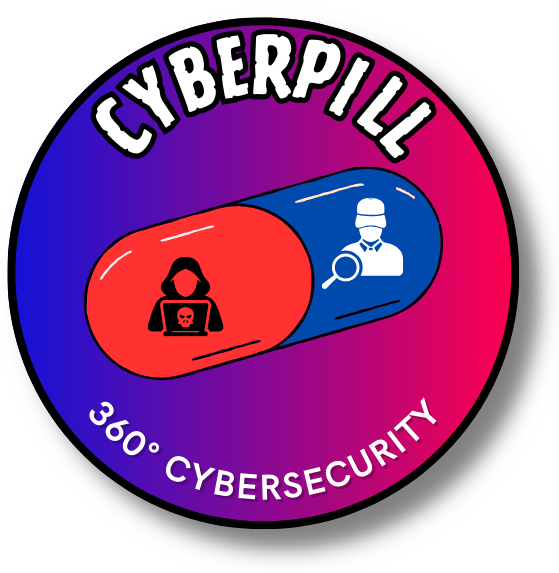In today’s digital age, where sensitive information is constantly being transferred and stored, data security is of utmost importance. Protecting personal and financial data from cyber threats requires robust measures, and one such effective technique is tokenization. Tokenization plays a crucial role in data security by replacing sensitive data with non-sensitive tokens, rendering the original information useless to potential hackers. This article explores the significance of tokenization and how it contributes to safeguarding sensitive data, ensuring peace of mind for individuals and organizations alike.

Understanding Tokenization
What is Tokenization?
Tokenization is a data security technique that involves the substitution of sensitive information with a unique identifier, known as a token. This process helps protect sensitive data by reducing its exposure and limiting potential risks associated with data breaches. The token acts as a reference to the actual data, which is securely stored and kept separate from the tokenization system.
How Does Tokenization Work?
Tokenization works by replacing sensitive information, such as credit card numbers, social security numbers, or personally identifiable information (PII), with randomly generated tokens. These tokens have no intrinsic meaning or value and are meaningless if intercepted by unauthorized individuals. The sensitive data itself is stored in a secure database or vault, while the tokens are used for any necessary internal or external operations, such as payment processing.
When a request for the original data is made, the tokenization system retrieves the corresponding token and uses it to locate and retrieve the actual data from the secure vault. This process ensures that sensitive data remains protected, even if the token is accessed or intercepted. Additionally, tokenization systems often incorporate other security measures, such as encryption and access controls, to further enhance data security.
Benefits of Tokenization
Tokenization offers numerous benefits to organizations looking to enhance data security:
- Reduced data breach risks: By replacing sensitive information with tokens, the potential risks associated with storing and transmitting actual data are significantly reduced. Even if a token is stolen, it is meaningless without the corresponding secure vault’s access to decrypt the token and retrieve the actual data.
- Protection of sensitive information: Tokenization helps safeguard sensitive information by keeping it separate from tokenization systems and databases. This separation reduces the likelihood of data exposure and minimizes the impact of a breach, should one occur.
- Compliance with data privacy regulations: Tokenization aids in meeting various data privacy and protection requirements, such as the Payment Card Industry Data Security Standard (PCI DSS). By implementing tokenization, organizations can demonstrate their commitment to safeguarding customer data and complying with regulatory standards.
Tokenization vs. Encryption
Differences between Tokenization and Encryption
While both tokenization and encryption are methods used to protect sensitive information, they differ in their approach and underlying principles:
- Data transformation: Encryption transforms data using complex algorithms to encode it into unreadable ciphertext. This ciphertext can only be decrypted using a corresponding encryption key. On the other hand, tokenization replaces sensitive data with randomly generated tokens, rendering the original data meaningless without access to the tokenization system.
- Data storage location: Encryption typically requires the secure storage of encryption keys along with the encrypted data. In contrast, tokenization stores the sensitive data in a secure vault separate from the tokenization system, making it harder for attackers to access the actual data.
- Token usage: Tokens are often used in day-to-day operations, such as payment processing or data retrieval, while encryption requires decryption to access the original data. This makes tokenization more efficient and user-friendly for regular business processes.
Advantages of Tokenization over Encryption
Tokenization offers distinct advantages over encryption in certain scenarios:
- Reduced scope for compliance: Tokenization helps reduce the scope of regulatory compliance audits by eliminating sensitive data from systems that handle payment transactions or store PII. This can simplify the compliance process and lower associated costs.
- Minimized data exposure: Encryption requires decrypting the data for authorized users to access it, potentially exposing the data to unauthorized access during this decryption process. In tokenization, the actual data remains securely stored, minimizing the exposure and risks associated with decryption.
- Enhanced data portability: Tokenization allows organizations to switch between tokenization providers or change tokenization systems easily. The data itself remains unaffected, as tokens generated by different systems can be mapped to the same original data.

Enhancing Data Security with Tokenization
Reducing Data Breach Risks
Data breaches can have severe consequences for organizations, including reputational damage, financial losses, and legal liabilities. Tokenization helps mitigate these risks by minimizing the exposure of sensitive data. By replacing sensitive information with tokens, even if a breach occurs, the stolen tokens hold no meaningful value without access to the secure vault containing the actual data. This significantly reduces the incentive for attackers and makes it more challenging for them to profit from stolen information.
Protecting Sensitive Information
Sensitive information, such as credit card numbers, social security numbers, or medical records, is highly valuable to cybercriminals. Tokenization provides an added layer of protection by keeping this data separate from tokenization systems or databases. Without access to the secure vault containing the original data, stolen tokens or intercepted transmission remains useless to attackers. This ensures that sensitive information is safeguarded, even in cases of unauthorized access.
Complying with Data Privacy Regulations
Data privacy regulations, such as the General Data Protection Regulation (GDPR) and the Health Insurance Portability and Accountability Act (HIPAA), place stringent requirements on organizations to protect and secure personal data. Tokenization helps organizations meet these regulatory standards by minimizing the presence of sensitive data within their systems. By implementing tokenization, organizations demonstrate a commitment to data privacy, which can have legal, financial, and reputational benefits.
Implementing Tokenization in Different Industries
Finance and Payment Processing Sector
The finance and payment processing sector is a prime target for cybercriminals seeking to obtain valuable financial information. Tokenization is widely adopted in this industry to protect sensitive payment card data. Merchants and payment processors leverage tokenization to securely store customer card information, reducing the risks associated with data breaches. Additionally, tokenization allows for efficient processing of payment transactions without storing the actual card data, simplifying compliance with PCI DSS.
Healthcare Industry
The healthcare industry handles vast amounts of sensitive patient data, making it a lucrative target for cyberattacks. Tokenization plays a crucial role in securing electronic health records, insurance information, and other confidential patient data. By tokenizing this information, healthcare organizations minimize the risk of unauthorized access and protect patient privacy. Tokenization also helps facilitate interoperability between different healthcare systems, allowing for seamless access to patient data while maintaining confidentiality.
Retail and E-commerce
Retailers and e-commerce businesses process a large volume of customer data, including payment card information and personal details. Tokenization is integral to securing this data and reducing the risks associated with data breaches. By tokenizing payment card data, retailers can ensure that sensitive financial information is protected, even when it’s stored for order fulfillment or used for recurring payments. Tokenization also aids in streamlining payment processing, enhancing customer trust, and reducing the compliance burden.

Challenges and Limitations of Tokenization
Data Integration Challenges
Implementing tokenization can present challenges, particularly when integrating tokenization solutions with existing systems and processes. Organizations may face technical complexities when updating systems to work seamlessly with tokenization, which can cause delays or disruptions to normal operations. Additionally, reconciling tokens with the original data during integration or migration processes requires careful planning and coordination to ensure accuracy and data integrity.
Tokenization in Cloud Environments
Organizations leveraging cloud services need to ensure that tokenization is implemented effectively in these environments. Cloud-based tokenization solutions must demonstrate robust security measures to protect sensitive data and tokens. Organizations should carefully evaluate the security controls provided by cloud service providers and establish clear policies and procedures for tokenization in the cloud. Taking these precautions helps prevent unauthorized access to tokens or data and ensures compliance with data protection regulations.
Potential Attack Vectors
While tokenization enhances data security, it is not impervious to attacks. Attackers may still target weaknesses in tokenization systems or attempt to intercept tokens during transmission. Organizations must implement additional security measures, such as robust encryption and access controls, to protect the tokenization infrastructure. Regular vulnerability assessments, penetration testing, and ongoing monitoring are essential to identify and address any potential vulnerabilities or emerging threats.
Best Practices for Tokenization
Selecting a Reliable Tokenization Solution
When adopting tokenization, selecting a reliable and reputable tokenization solution becomes crucial. Organizations should consider factors such as the provider’s experience, reliability, and compliance with industry standards. Additionally, evaluating the scalability, performance, and ease of integration with existing systems is essential. Thoroughly assessing vendor certifications, security measures, and support services ensures a well-rounded evaluation of tokenization solutions to make an informed decision.
Keeping Tokenization Keys Secure
Tokenization keys are fundamental to the security of the tokenization environment. Organizations must implement robust key management practices to ensure the security and integrity of tokenization keys. This includes utilizing strong encryption algorithms, storing keys securely, regularly rotating keys, and restricting access to authorized personnel. Properly managed keys help prevent unauthorized access to the tokenization system, reducing the risk of data compromise.
Monitoring and Auditing Token Usage
Effective monitoring and auditing of token usage provide valuable insights into the security and efficiency of the tokenization system. Organizations should implement logging mechanisms to track token transactions, detect anomalies, and identify potential security breaches. Regularly reviewing these logs and conducting audits ensures compliance with security policies and helps identify areas for improvement. Timely action based on monitoring and auditing results is crucial to maintaining a robust tokenization environment.

Future Trends in Tokenization
Tokenization in Internet of Things (IoT)
With the proliferation of connected devices in the Internet of Things (IoT) landscape, tokenization holds great potential in enhancing data security. By tokenizing sensitive data transmitted between IoT devices, organizations can minimize the risks associated with data breaches or unauthorized access. Tokenization in IoT helps protect critical information, such as personal health data, smart home configurations, or industrial control system commands, ensuring privacy and integrity are maintained in highly interconnected environments.
Blockchain and Tokenization
The inherent security and decentralized nature of blockchain technology complement tokenization, offering enhanced data protection. Integrating tokenization with blockchain allows for the creation of immutable records, preventing unauthorized modifications to sensitive data. The transparency and integrity provided by blockchain technology improve the traceability of tokens, enabling auditability and reinforcing trust in tokenization processes.
Artificial Intelligence and Machine Learning in Tokenization
The application of artificial intelligence (AI) and machine learning (ML) techniques can bolster tokenization’s capabilities. AI and ML algorithms can be leveraged to detect patterns and anomalies in token usage, enabling organizations to proactively identify potential security threats and respond accordingly. Applying AI and ML to tokenization can enhance the precision and efficiency of security controls, providing organizations with an advanced defense against evolving cyber threats.
Conclusion
Tokenization is a powerful data security technique that helps organizations protect sensitive information and enhance overall data security. By replacing sensitive data with tokens and securely storing the actual data in separate vaults, tokenization minimizes the risks associated with data breaches and unauthorized access. Tokenization offers several advantages over encryption, such as simplified compliance, reduced data exposure, and enhanced data portability. However, organizations must be aware of the challenges and limitations of tokenization, such as data integration complexities and potential attack vectors. By following best practices, such as selecting reliable tokenization solutions, maintaining secure tokenization keys, and monitoring token usage, organizations can employ tokenization effectively and future-proof their data security efforts. As tokenization evolves and integrates with emerging technologies like IoT, blockchain, and AI, its role in safeguarding sensitive data will continue to expand, ensuring secure and trusted data transactions in various industries.


